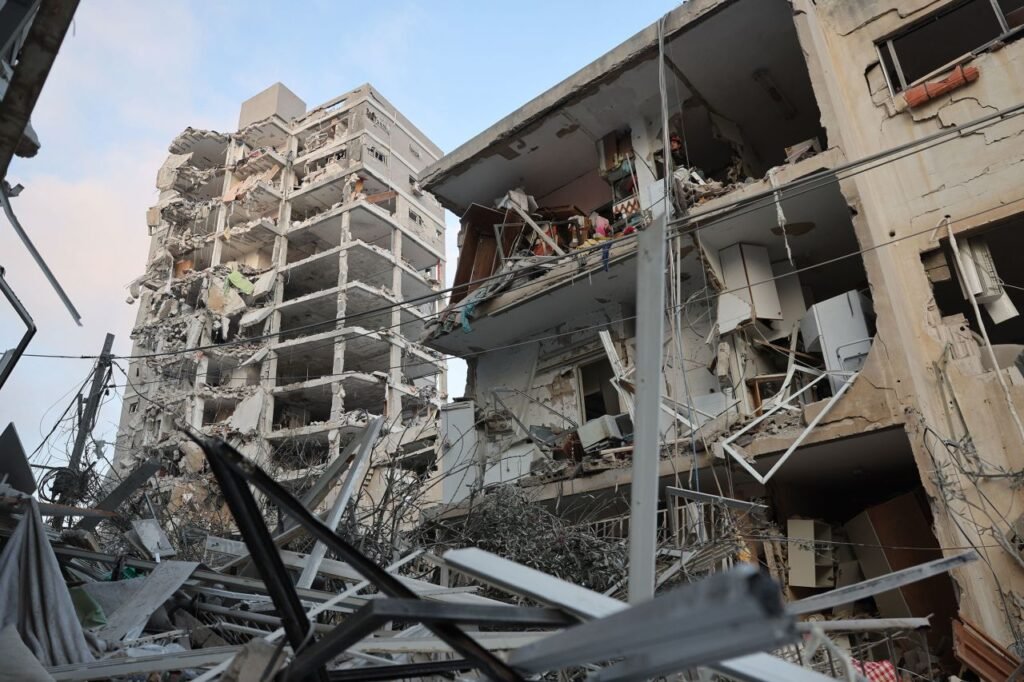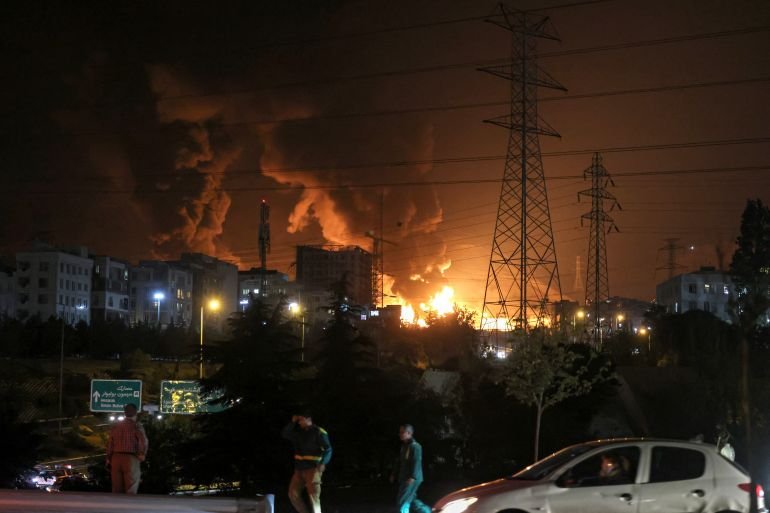Jun 14, 2025 09:24 AM IST
The tensions escalated after Israeli armed forces took Iran by surprise and attacked Iran nuclear and military sites under ‘Operation Rising Lion’.
Iran and Israel are on the brink of war and the two Middle East nations have already launched several waves of airstrikes against each other. The tensions escalated after Israeli armed forces took Iran by surprise and attacked Iran nuclear and military sites under ‘Operation Rising Lion’. Justifying the strikes, Israel said that it had intel indicating that Iran’s nuclear programme had almost reached ‘point of no return’.

Here’s what we know about the ongoing conflict:
What is happening now: Overnight missile barrages rock Israel
- Iran launched multiple waves of missile attacks on Israel early Saturday, targeting Tel Aviv and other areas, following Israeli strikes on Iranian nuclear and military facilities.
- Air raid sirens blared across Israel, with the military urging residents to seek shelter in bomb shelters. Dozens of missiles were intercepted, but some penetrated Israel’s air defenses, causing damage.
- In Tel Aviv, smoke billowed above skyscrapers, and a high-rise building was hit, trapping residents. Israel’s firefighting service and rescuers responded, with 34 people wounded in the Gush Dan area.
- Resident Chen Gabizon described a “big explosion” that shook his underground shelter, filling it with smoke and dust.
How it started Israel’s presumptive strikes on Iran
- Tensions between the two countries escalated on Friday after Israel conducted widespread air raids targeting approximately 200 Iranian sites, including nuclear facilities and air bases, killing several top Iranian generals and nuclear scientists.
- The Israeli military claimed it killed most of the senior leadership of Iran’s Revolutionary Guards’ air force, including Gen. Amir Ali Hajizadeh, head of the missile program, in an underground command center.
- Iran confirmed the deaths of armed forces chief of staff Mohammad Bagheri, Revolutionary Guards head Hossein Salami, and six nuclear scientists. Ayatollah Ali Khamenei swiftly appointed replacements.
- The Natanz nuclear enrichment plant’s above-ground sections were destroyed, though the International Atomic Energy Agency (IAEA) reported unchanged radiation levels outside the site. Limited damage was reported at Fordo and Isfahan nuclear sites.
What Iran said on the attack
- Iran’s Revolutionary Guard claimed it attacked dozens of targets in Israel, with missiles striking Tel Aviv. A second wave of long-range missiles targeted Jerusalem and other areas, wounding seven more people.
- In Tehran, explosions and air defense systems were active, with fire and smoke reported at Mehrabad airport. Local media reported a blast near the airport, and a residential building was hit, leaving a gaping hole.
- Crowds in Tehran took to the streets, waving flags and chanting anti-Israel slogans in support of Iran’s military response.
Calls for de-escalation
- UN Secretary-General Antonio Guterres called for an immediate ceasefire, stating, “Enough escalation. Time to stop. Peace and diplomacy must prevail,” in a post on X.
- US President Donald Trump praised Israel’s strikes as “excellent” but urged Iran to “make a deal,” while the US assisted Israel in intercepting missiles. Trump and UK Prime Minister Keir Starmer emphasized the need for “dialogue and diplomacy.”
- Iran’s Foreign Minister Abbas Araghchi condemned Israel’s attacks as “state terrorism” and requested an emergency UN Security Council meeting, asserting Iran’s right to self-defense.
Both nations refuse to budge
- Israel’s Prime Minister Benjamin Netanyahu claimed the strikes neutralized Iran’s top military commanders, senior nuclear scientists, and a significant portion of its ballistic missile arsenal. He warned of further attacks and called on Iranians to oppose their government.
- Iran’s Supreme Leader Ayatollah Ali Khamenei vowed to bring Israel “to ruin,” accusing it of a “great crime.” Iran warned the US of consequences, alleging American coordination in the attacks.
- The conflict has disrupted planned US-Iran nuclear talks in Oman, raised oil prices, and caused stock market declines. Israel sealed off the West Bank, and Iran restricted internet access amid the attacks.
- The Israeli military reported smuggling weapons into Iran via Mossad to target defenses, a claim unconfirmed by Iran.
Casualties and damage
- Iran’s UN ambassador reported 78 deaths and 320 injuries from Israel’s initial strikes on Friday, claiming most victims were civilians.
- In Israel, missile strikes wounded at least 41 people across two waves, with significant property damage in Tel Aviv and Ramat Gan, including destroyed homes and burnt-out cars.

News / World News / Israel, Iran exchanging blows brings Middle East on edge of war: Here’s what is happening
Visited 1 times, 1 visit(s) today






